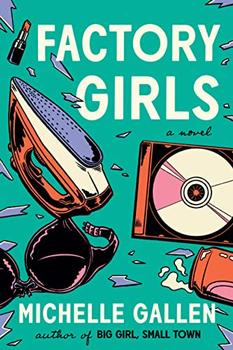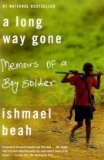Summary | Excerpt | Reviews | Beyond the book | Read-Alikes | Genres & Themes | Author Bio

Set during the last two months of 1979 Louise
Dean's novel is a show stopper, not least because the "troubles"
in Northern Ireland are a very sensitive subject for any English
author to write about without appearing biased, but she pulls
this delicate feat off with aplomb. In
this, her sophomore novel, following
Becoming Strangers, Dean avoids taking sides or even
getting into the politics of the situation in any detail,
instead she focuses on the universal human tragedy that occurs when
neighbors go to war with each other.
She also neatly avoids falling into the trap of simplifying the
conflict on purely religious grounds; the story is told from
three perspectives: Kathleen Moran, a Catholic mother of four
children; John Dunn, a former British soldier, with no vested
interest in the conflict, just looking to earn some decent money
in order to buy a house with his girlfriend; and Sean,
imprisoned in the Maze for bombing a policeman, who becomes an
integral cog in the 3-year protest against the prisoners' status
as criminals, as opposed to prisoners of war.
Sean, and the other members of H-block, live in self-imposed
squalor, naked (as they refuse to wear prison uniform) in
freezing cells (because they've broken all the windows as part
of their protest). They spend their days writing messages on the
walls with their own feces while planning how to take their war
to the next level, both within and outside the prison.
Sean's mother, Kathleen, is a staunch Catholic but her God
doesn't seem to be much help in the losing battle she's fighting
to prevent her family becoming ever more embroiled in the
Troubles. Her husband is a drunk, her eldest son is locked up in
the Maze, her younger children are increasingly caught up in the
fighting and soldiers routinely search her house for weapons,
while others patrol the streets outside her house. Money is
always tight; and a quick affair with a handsome IRA spokesman
only momentarily lifts her from the drudgery of her life, while
burdening her with guilt on top of the tragedy that is her
normal everyday existence. Kathleen is a mass of contradictions;
on the one hand she's proud that her eldest son has been locked
up for the cause of a united Ireland (even though she's never
been out of the northern counties of Ireland herself) but
terrified of the harm that could come to him in prison; she
doesn't understand how her eldest daughter could enjoy living in
England but has no problem claiming benefits off the English
government herself.
On the other side of Belfast, in a rented house in the
Protestant sector of the city, lives John Dunn. Dunn doesn't
have strong views on the politics of the matter, in fact it's
not clear that he's ever really questioned the political stance
that he's been born into by dint of his English Protestant
heritage. He thinks he's seen everything and, after a career in
the army, being a prison officer in the Maze can't be that bad,
but he's unprepared for the brutality of life in the Maze. On
top of this, the IRA start a campaign to kill prison officers
making him a target 24/7, and he has a lot more to lose than he
used to now that he has a girlfriend and an 18-year-old son that
he didn't know existed until a few months ago.
Set against the real-life events of the period, the two primary
story-lines never fully meet; instead they contrast each other,
grimly showing the futility of the many wasted lives and the
day-to-day realities of life for the everyday people on the
front line, entrenched in their opinions but far removed from
the political decision making process.
![]() This review was originally published in The BookBrowse Review in February 2007, and has been updated for the
February 2008 edition.
Click here to go to this issue.
This review was originally published in The BookBrowse Review in February 2007, and has been updated for the
February 2008 edition.
Click here to go to this issue.

If you liked This Human Season, try these:

by Michelle Gallen
Published 2022
A funny, fierce, and unforgettable read about a young woman working a summer job in a shirt factory in Northern Ireland, while tensions rise both inside and outside the factory walls.

by Ishmael Beah
Published 2008
The devastating story of war through the eyes of a child soldier. Beah tells how, at the age of twelve, he fled attacking rebels and wandered a land rendered unrecognizable by violence. By thirteen, he’d been picked up by the government army, and became a soldier.
Your guide toexceptional books
BookBrowse seeks out and recommends the best in contemporary fiction and nonfiction—books that not only engage and entertain but also deepen our understanding of ourselves and the world around us.